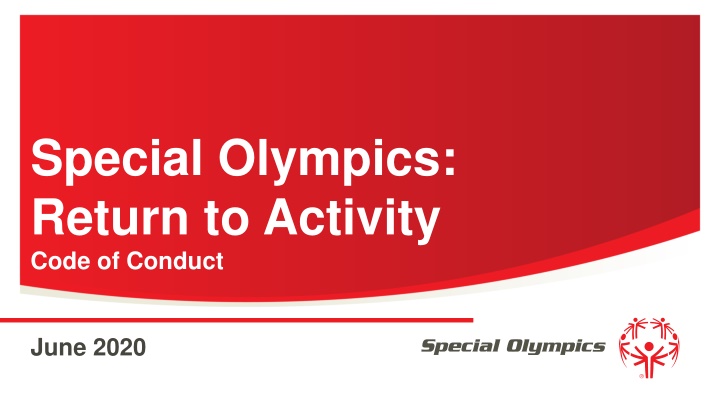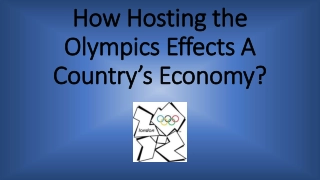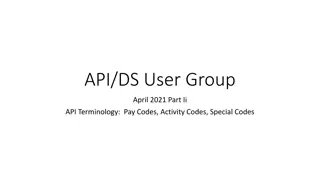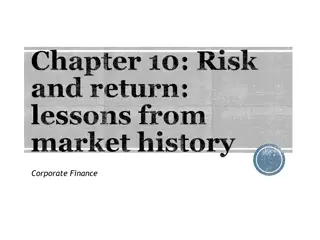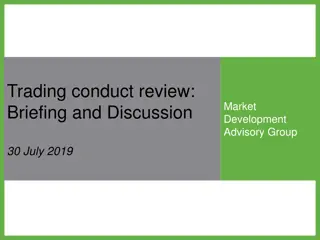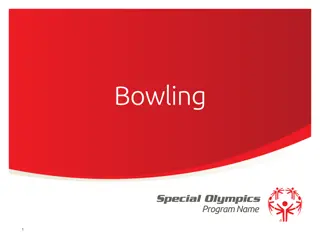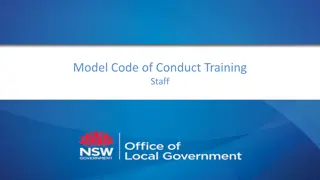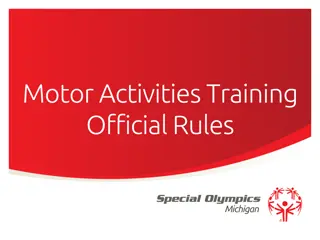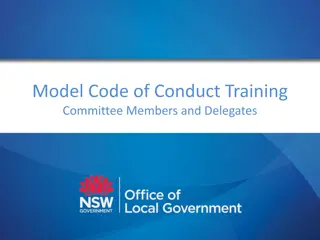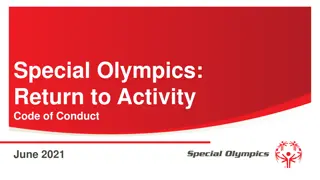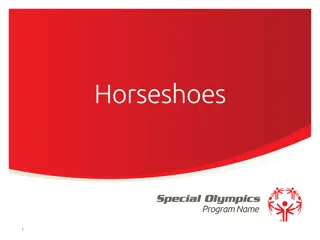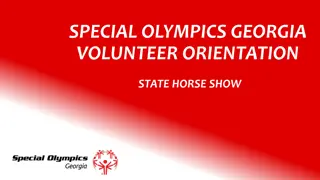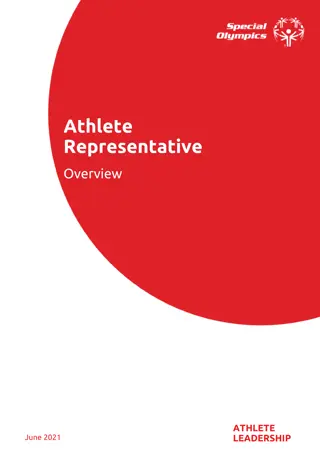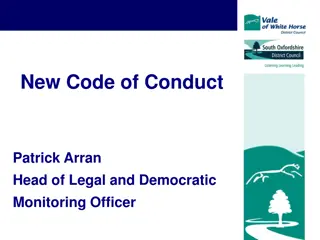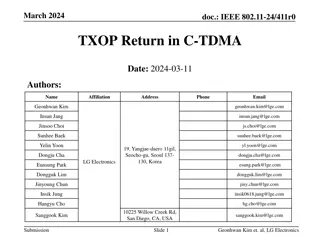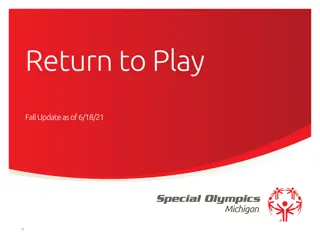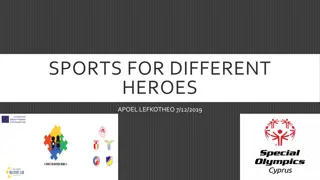Special Olympics Return to Activity Code of Conduct June 2020
Special Olympics participants are required to adhere to strict safety guidelines to prevent the spread of COVID-19. This includes staying home if symptomatic, maintaining physical distance, wearing masks, and practicing proper hand hygiene. Participants with high-risk conditions are advised to avoid in-person events until the risk decreases in their community. By following these protocols, participants aim to safeguard themselves and their fellow athletes during Special Olympics activities.
Download Presentation

Please find below an Image/Link to download the presentation.
The content on the website is provided AS IS for your information and personal use only. It may not be sold, licensed, or shared on other websites without obtaining consent from the author.If you encounter any issues during the download, it is possible that the publisher has removed the file from their server.
You are allowed to download the files provided on this website for personal or commercial use, subject to the condition that they are used lawfully. All files are the property of their respective owners.
The content on the website is provided AS IS for your information and personal use only. It may not be sold, licensed, or shared on other websites without obtaining consent from the author.
E N D
Presentation Transcript
Special Olympics: Return to Activity Code of Conduct June 2020
Introduction I understand I could get Coronavirus through sports, training, competition and/or any group activity at Special Olympics. I am choosing to participate in sports, competition and/or other Special Olympics activities at my own risk. During the time these precautions are needed, I agree to the following to help keep me and my fellow participants safe:
#1 If I have COVID-19 symptoms or have been near someone who has had COVID-19 in the past 14 days, I will stay at home and NOT go to any activities until 14 days after exposure or 7 days after all of my symptoms are over (unless I have received clearance from a healthcare professional).
#2 Special Olympics gave me education on Special Olympics rules for COVID-19 and who is at high-risk.
#3 I know that if I have a high-risk condition, I have more risk that I could get sick or have serious outcomes from COVID-19. Until there is little or no Coronavirus cases in my community, if I have a high-risk condition, I know I should not participate in-person at Special Olympics events.
#4 I know that before I participate in a Special Olympics activity, I will be asked questions about symptoms or exposure to COVID-19. My temperature may also be taken. I will answer truthfully to all questions and participate fully.
#5 I will keep at least 6 ft/2m from all participants at all times.
#6 I will wear a mask or face covering at all times while at Special Olympics activities. I may not have to wear it during active exercise.
#7 I will wash my hands for 20 seconds or use hand sanitizer before any Special Olympics activities. I will wash my hands for 20 seconds any time I sneeze, cough, go to the bathroom or get my hands dirty.
#8 I will avoid touching my face and will cover my mouth when I cough or sneeze and I will immediately wash my hands after.
#9 I will not share water/beverages bottles or towels with other people.
#10 I will only share equipment when instructed to. If equipment must be shared, I will only touch the equipment if it is disinfected first.
#11 If I get or have had COVID, I will not go to any in-person Special Olympics events until 7 days after my symptoms end. I will go to my doctor and get written clearance before returning to any sport or fitness activities.
#12 I understand that if I do not follow all of these rules, I may not be allowed to participate in Special Olympics activities during this time.
